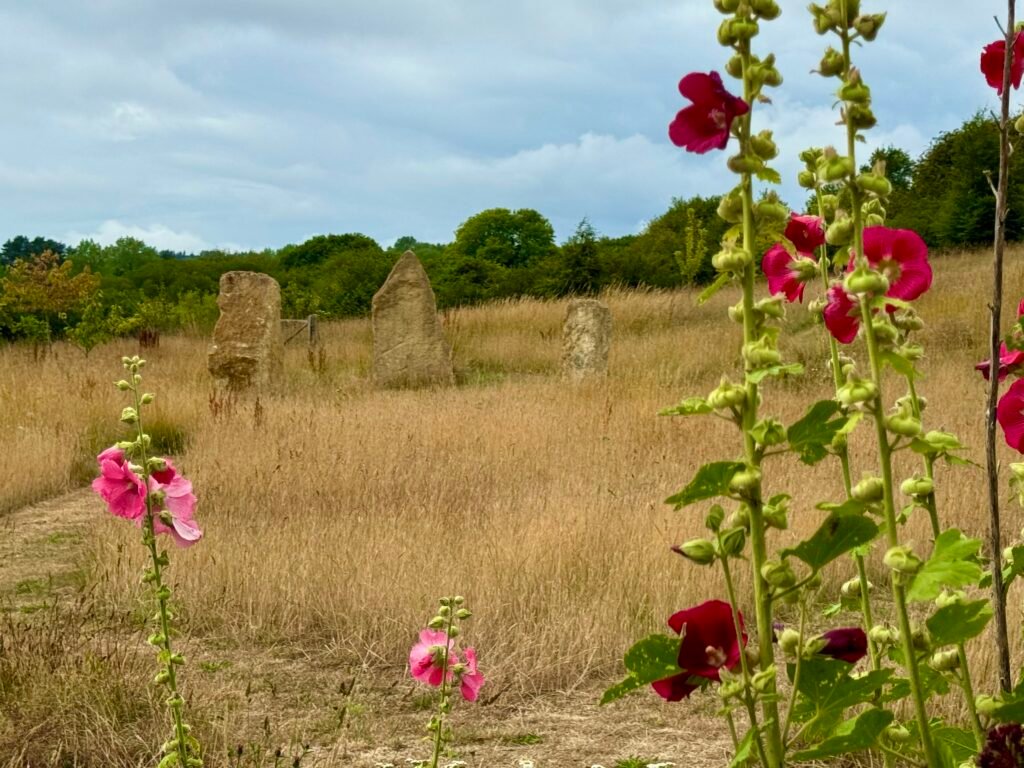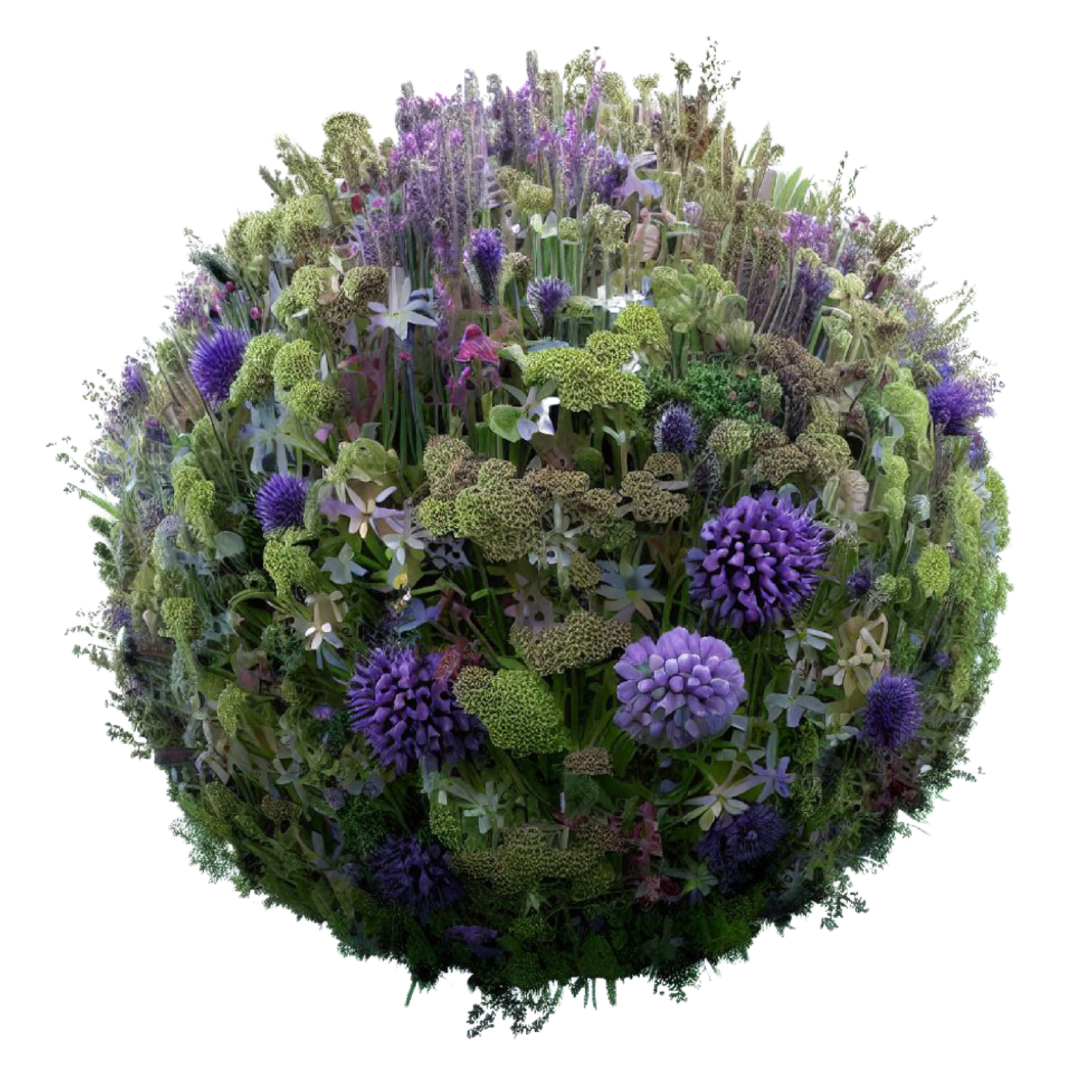Bugs are back – let’s fight to save them…
Our garden is humming and buzzing with life this year – and it’s glorious.
Every step through the wildflower meadows brings a flurry of movement. Bugs of all sorts dart between the grasses, butterflies spiral upward, bees bury into blooms. In the golden light of early evening, the air itself seems to sparkle with insect activity – and the swallows are loving it. I’ve never seen so many, swooping and swirling in joyful pursuit of their prey.
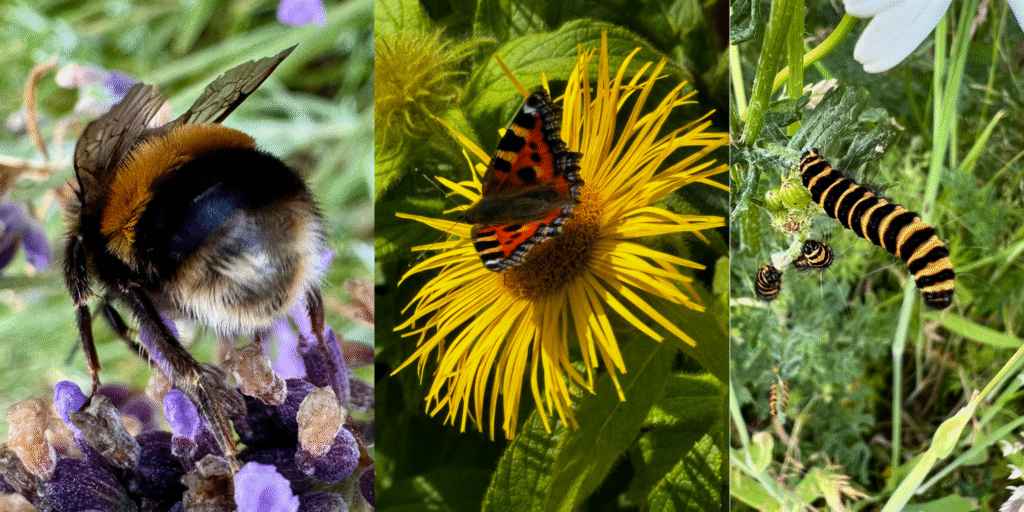
Butterfly Magic
We record butterflies weekly on a transect that’s been running for five years. This summer, one surveyor came back wide-eyed after counting nearly 300 butterflies in a single session – gatekeepers in flocks, green-veined whites everywhere, and a riot of fritillaries, blues, and browns. She described it as like “being in a Disney movie… butterflies dancing around my legs… a whirlwind of wings!”
We’ve had some remarkable sightings: red-tipped clearwing moths, damselflies and hawkers, silver-washed fritillaries, small coppers, marbled whites, and the not-at-all-green Dark Green Fritillary – now a regular visitor.
But is this just a blip?
While 2025 is turning out to be an insect bonanza, it may not be the start of a trend – it could be an exception.
Last year – 2024 – was the worst ever recorded in the Bugs Matter citizen science survey. Across the UK, insect numbers have plummeted by an astonishing 61% since 2021 – and that’s just from one study.
Globally, the picture is even more alarming. A landmark 2019 review found that 40% of all insect species are in decline, and a third are endangered.
Why does this matter?
Because insects are the foundation of life as we know it. They pollinate our crops and wild plants, break down waste, enrich the soil, and provide food for birds, bats, amphibians, and many mammals. Without them, ecosystems unravel.
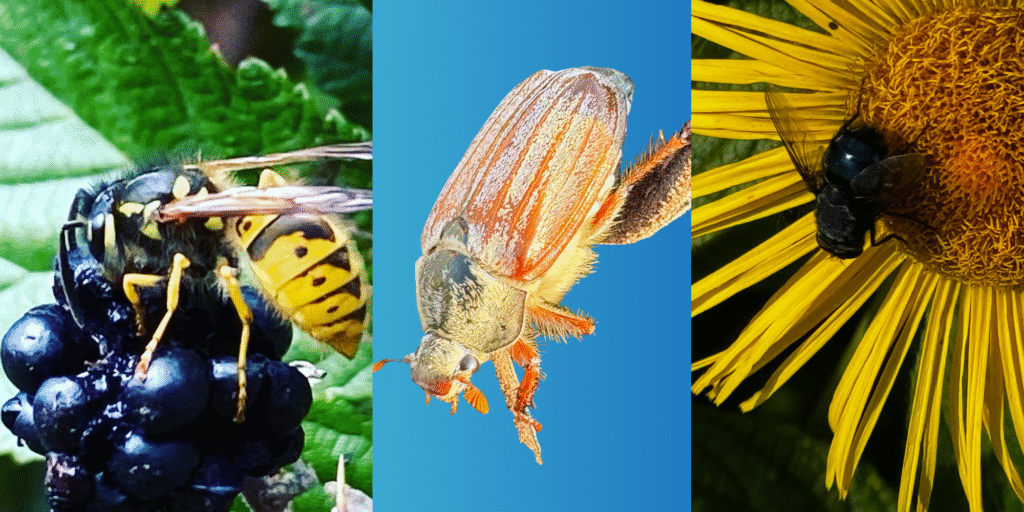
What’s causing the decline?
Habitat loss is a major driver – through intensive agriculture, pesticide use, and urban sprawl. Climate change is increasingly disruptive. Add to that light pollution, vehicle emissions, and the tidying-up of nature – where wildflowers, tangled hedgerows and scruffy corners are cleared away for neat lawns and clipped borders – and the result is a world where bugs struggle to survive.
Supporting Buglife
That’s why this year’s burst of insect life feels so precious – and why we’ve chosen to support Buglife through our 2025 Café Bridge event. (It’s our third year running Café Bridge in Bridport – always supporting one community organisation and one environmental cause.)
Buglife is the only UK charity dedicated to protecting all invertebrates. They work tirelessly to save threatened species and habitats, raise awareness, and campaign for better protections.
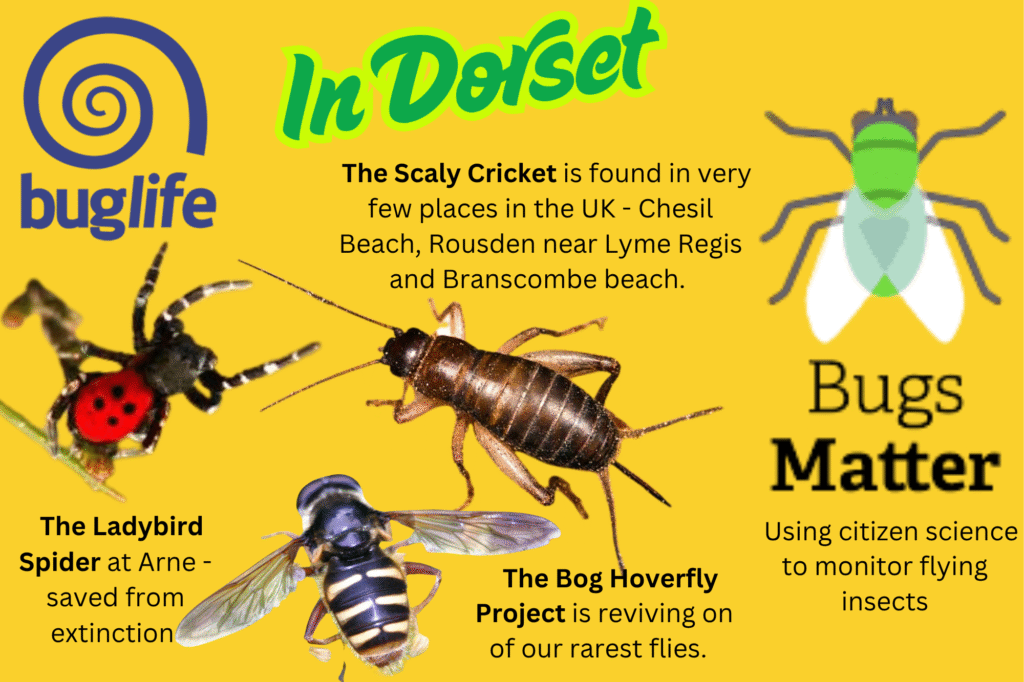
A glimpse of what’s possible
Maybe – just maybe – this year’s insect bonanza is more than a lucky break. Maybe it’s a glimpse of what could return, if we give nature space, reduce chemical use, and celebrate the wild.
So yes – our garden is buzzing in 2025. And it’s beautiful.
Wouldn’t it be brilliant if this wasn’t just a fluke, but the start of a transformation? The joy of insects mustn’t be a thing of the past – it must be part of our future.
I’ll be fighting to make that happen.
Will you join me?
